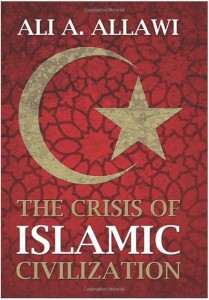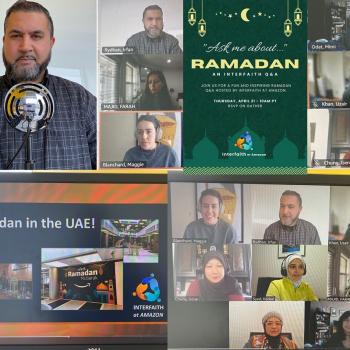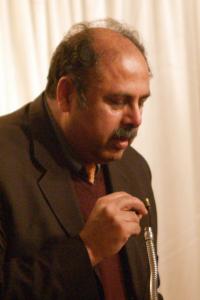Recently someone recommended I read this book called “The Crisis of Islamic Civilization” by Ali A. Allawi. Mr. Allawi served as the Minister of Defense and Minister of Finance in the Iraqi postwar governments. He is currently a Senior Visiting Fellow at Princeton University.
I must say that I was pleasantly surprised while reading this book, because unlike other books with similar subject matters, this was not just an academic book filled with many footnotes and a few historical facts, but instead is written in an engaging style, which is easy to read, but also includes interesting stories which give a better context about what has happened in the so-called “Islamic World” over the past 100 years.
Almost each chapter begins with a verse of poetry from a famous Muslim poet, such as Rumi and IqbaL, or a quote from an important historical figure, such as Ayatollah Khomeini or Former Malaysian Prime Minister Mahathir bin Muhammad. There are even quotes from several Non-Muslim thinkers and leaders such as Lord Acton, a nineteenth century British Historian. Then of course there are verses from the Holy Quran and the Bible along with sayings of the Prophet Muhammad (S) which relate in some way or another to the subject matter in each chapter.
This diverse and varied citation is one aspect of this book which makes for a very interesting reading. Obviously the author’s experience is in Politics and Socio-Economic development, but Mr. Allawi, who grew up in a secular Iraq, also discusses other important subject matters such as different religious trends in Islam, such as Sufism, Sunni, Shia, Salafism and Wahabism.
He also discusses, while giving important historical context, the many issues facing the Muslim communities in Iraq, Iran, Egypt, Pakistan, Turkey, India, Malaysia, Sudan and Saudi Arabia among other Muslim majority countries and also includes the problems which Muslims in Europe and the United States have to deal with – such as racism, stereotypes and hatred after 9/11 and other acts of violence and terrorism.
But one of my favorite chapters is near the end of the book, Chapter 10, which is called “The Decline of Creativity” which talks about how the great Islamic civilizations of the past excelled in Science, Art, Music, Optics, Medicine, Mechanical Engineering and Architecture – and now we have little or no creativity in our communities and this is one of the major reasons why, according to the author, the Muslim World is in the decline that it is today. With only 1% of the World’s patents being created by Muslims, I would have to agree with Mr. Allawi.
With my educational and professional background being in Architecture, this paragraph of Mr. Allawi really caught my eye:
“But the degradation of Islam’s historical cities is not entirely due to the westernized elites. The ravages wrought by the Wahhabis of Saudi Arabia on the fabric of the two holiest cities in Islam, Mecca and Medina, are well known. The extent of the damage wrought on these two cities has been exposed mainly due to the heroic efforts of the Jeddah-based architect and historian Sami Angawi, who wrote about the wanton destruction of millennium-old buildings, in both Mecca and Medina, under the aegis of the Wahhabi clerical establishment. The clerics had ruled that historical sites such as the Prophet’s birthplace could become virtual shrines and thus potentially objects of worship in themselves. In conclusion, they reasoned, it would be best if these buildings and sites were demolished, lest they give rise to idolatry. Their rulings have been generally welcomed by the political and commercial classes, who saw in the destruction of these buildings new opportunities for commercial profit from land speculation and development. According to Angawi and others, nearly 95 percent of the historical buildings in the two holy cities have been demolished. Whenever a historical site which has any connection with the prophetic period is uncovered by archaeologists, the bulldozers move in to pull it down and pour concrete over the site. Other historical buildings (such as the Ottoman fortress which guarded Mecca) have been demolished in order to make way for high-rise buildings and shopping centers.”
We see a classic example of this with the large Abraj Al Bait Towers aka “The Mecca Royal Hotel Clock Tower” which is large monstrosity right behind the Holiest Site in Islam – the Masjid al Haram, where the Ka’aba is located.
Of course it is easy to blame the Wahhabis on all the problems of the Muslims today – In reality, it is not that simple. Most Muslims today, even here in the United States, have a lack of creativity and don’t really appreciate or understand Islamic Architecture or Art. Many of these Muslims are highly educated and “professionals” in their respective fields, yet they fail to realize the importance of art and culture to the formation and development of a true Islamic identity as well as a civilization.
I will end with this with a final paragraph from Mr. Allawi’s book (also in Chapter 10) where he sums it up pretty nicely:
“The idea that Islamic civilization is based not only on outer forms but on an inner reality that has spiritual, metaphysical and even cosmological aspects to it is lost on many. A huge collective effort is now needed simply to stop the destruction of the vestiges of Islamic civilization, but it is unclear whether this will be forthcoming. In the final analysis, Muslims must understand that the revival of their civilization is not simply about the rediscovery of an outer piety or conduct and behavior. Science and technology are not value-free. Neither is a world built around their demands. One cannot revive traditional building methods if there are powerful commercial interests in the cement industry. Neither can one construct cities and neighborhoods conducive to the community spirit if the cityscape is dominated by modern towers of Babel which aggressively flaunt their disdain or disregard for Islamic norms of life.”













